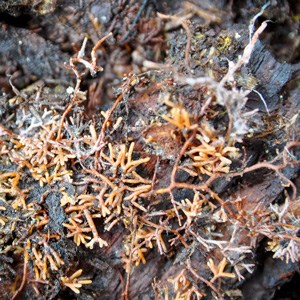Contact
nils.hogberg@slu.se, 018-671875

Six researchers at the Department of forest mycology and plant pathology have received new grants from the Swedish Research Council and Formas. Now harmful fungi, nitrous oxide emissions, invasive pests, tree establishment and denitrification will be investigated.
From Formas’ annual open call, Professor Jiasui Zhan has received SEK 3 million SEK to profile the evolutionary adaptation of the pathogenic fungus Zymoseptoria tritici to control actions and increased temperature. In the same call, Christopher Jones has received the same amount of money to investigate the effect of pH on soil liming as means to reducing nitrous oxide emissions.
In the annual open call for research projects for researchers early in their career, Kateryna Davydenko will receive 4 million SEK for the project "Meet me halfway: conservation of forest biodiversity in the face of invasions by alien pests".
Researchers from the Department will be given three grants from the Swedish Research Council's call for proposals in natural sciences and engineering in 2023. Karina Clemenssen will receive 3.8 million SEK to investigate the establishment of trees in alpine regions and the importance of mycorrhizal networks and interactions between different fungal groups for tree establishment.
Professor Sara Hallin will receive 3.9 million SEK to look at the many faces of nitrate-ammonifying bacteria and clarify their role in nitrogen retention and loss as well as nitrous oxide emissions in terrestrial ecosystems.
Grace Pold will receive the Swedish Research Council's establishment grant of 4 million SEK for the project "Does it bend before it breaks? Determining the roles of metabolic flexibility and speciation in community responses to a changing environment using denitrification as a model process”.
– It is great that researchers from the Department has recieved grants both from the Swedish Research Council and FORMAS! This shows that we have both good scientific stature as well as an understanding on how to apply our knowledge to solve important social problems! A special congratulations to Sara Hallin and the soil microbiology group for succeeding great in realizing their scientific skill in so many grants, says Nils Högberg, Head of the Department.
nils.hogberg@slu.se, 018-671875